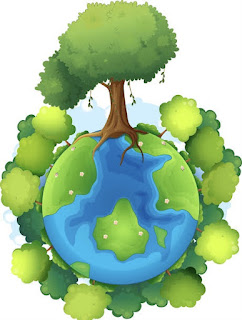Nigeria may miss SDGs Goal 6 by 2030 if the government does not ensure accessibility to water supply, United Nations Children Fund (UNICEF) specialist Moustapha Niang has said.
According to Niang, over 15 million Nigerians still drink water from rivers, lakes, ponds, streams and irrigation canals.
He spoke at the opening of a two-day media dialogue on water, sanitation and hygiene (WASH), organised by the United Nations Children Fund (UNICEF), in partnership with Child Right Information Bureau (CRIB) of the Ministry of Information.
Niang said 57 million Nigerians lacked access to potable water, adding that more than half of this number live in rural areas.
Accessibility to safe water, he said, can save the lives of most children under five years, who die annually from preventable diseases, adding that most of the diseases are caused by poor access to water.
He said if the government did not put in more effort to ensure access to safe water, Nigeria was not likely to meet the Sustainable Development Goal 6 target.
“We need to do 20 times more of what we are currently doing in terms of policies and funding in providing safe water to the people.
“For example, in 1999, 12 per cent of the population had pipe-borne water access to their homes, but this percentage had declined to 2 per cent as at 2015,” he said.
The SDG Goal 6 aims at ensuring availability and sustainable management of water and sanitation for all.
In her presentation, UNICEF WASH Specialist Mrs. Martha Hokonya listed the benefits of potable water, urging the media to do the needful in prompting the government to invest in provision of potable water.
Meanwhile, UNICEF has warned that more than 180 million people lacked access to basic drinking water in countries affected by conflict, violence and instability around the world, as World Water Week gets under way.
“Children’s access to safe water and sanitation, especially in conflicts and emergencies, is a right, not a privilege,” said Sanjay Wijesekera, UNICEF’s global chief of water, sanitation and hygiene. He added:“In countries beset by violence, displacement, conflict and instability, children’s most basic means of survival – water – must be a priority.”
People living in fragile situations are four times more likely to lack basic drinking water than populations in non-fragile situations, according to a recent UNICEF and World Health Organisation (WHO) analysis. Of the estimated 484 million people living in fragile situations in 2015, 183 million lacked basic drinking water services.
In Yemen, a country reeling from the impact of over two years of conflict, water supply networks, which serve the country’s largest cities are at imminent risk of collapse due to war-inflicted damage and disrepair. Around 15 million people in the country have been cut off from regular access to water and sanitation.
In Syria, where the conflict is into its seventh year, around 15 million people are in need of safe water, including an estimated 6.4 million children. Water has frequently been used as a weapon of war. In 2016 alone, there were at least 30 deliberate water cuts – including in Aleppo, Damascus, Hama, Raqqa and Dara, with pumps destroyed and water sources contaminated.
In conflict-affected areas in northeast Nigeria, 75 per cent of water and sanitation infrastructure has been damaged or destroyed, leaving 3.6 million people without even basic water services.
In South Sudan, where fighting has raged for over three years, almost half the water points across the country have been damaged or completely destroyed.
“In far too many cases, water and sanitation systems have been attacked, damaged or left in disrepair to the point of collapse. When children have no safe water to drink, and when health systems are left in ruins, malnutrition and potentially fatal diseases like cholera will inevitably follow,” said Wijesekera.
In Yemen, for example, children make up more than 53 per cent of the over half a million cases of suspected cholera and acute watery diarrhoea reported so far. Somalia is suffering from the largest outbreak of cholera in the last five years, with nearly 77,000 cases of suspected cholera/acute watery diarrhoea. And in South Sudan, the cholera outbreak is the most severe the country has ever experienced, with more than 19,000 cases since June 2016.
In famine-threatened northeast of Nigeria, Somalia, South Sudan and Yemen, nearly 30 million people, including 14.6 million children, are in urgent need of safe water. More than five million children are estimated to be malnourished this year, with 1.4 million severely so.
Friday, 8 September 2017
Nigeria may miss 2030 SDGs goal, UNICEF warns
Subscribe to:
Post Comments (Atom)
Daily Weapon to Combat Climate Change
The continuous exploration of Mother Earth is drifting the balance and threatening livelihood daily. This isn’t just making it difficult to...









No comments:
Post a Comment